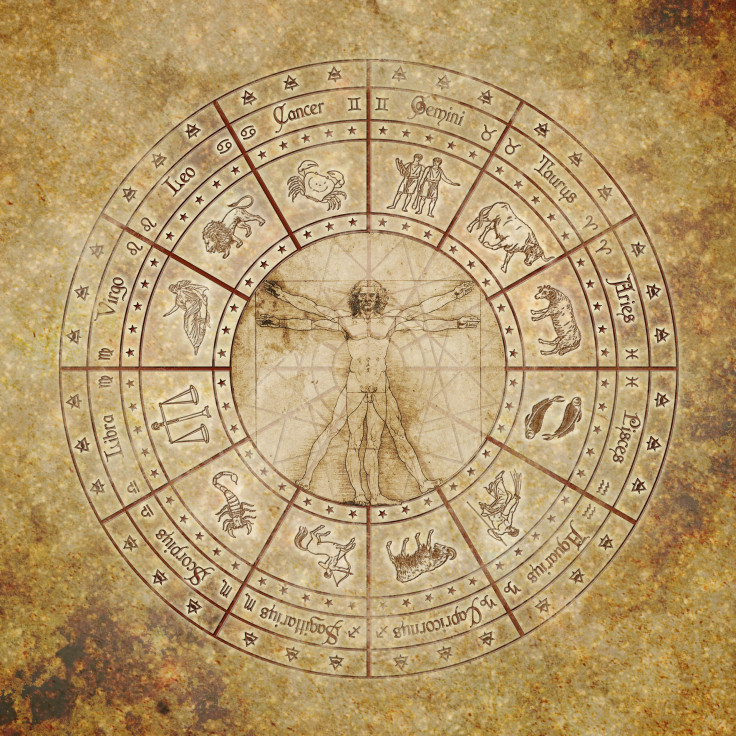Horoscopes For Human Health: How Astrological Signs And Stars Have Shaped Medicine

A sector of modern society values daily horoscopes, annual astrological predications, and sign compatibilities with friends and lovers, as the ancients did. In fact, a quarter of Americans believe in the reliability and accuracy of astrological foresight, according to a Gallup survey. Over the centuries, however, the story of how and why humans study stars and birthdates has changed and impacted our health.
Humans began studying astrology as early as 2000 B.C., thanks to the Babylonian priests who were the first to look up and worship the sky, according to archeologists’ records. They believed the planetary heavens above determined the fates of their kings and respected empires due to a universe controlled by a hierarchy of supernatural beings. But it wasn’t until a school was devoted to solely studying astrology that the ancient Greeks adapted the practice.
By the 12th and 13th century, medieval European astrologers were considered to be magicians and highly respected scholars, according to the British Library. They preached to the public that the movements of the stars influenced everything from weather, crops, personalities, and even how the human body functioned. Doctors carried special almanacs containing star charts whenever they went to treat a patient. Before making a diagnosis doctors would check the positions of the stars, which explained how certain astrological formations or star signs ruled over each part of the body. At the end of the 1500s, European physicians were required by law to calculate the position of the moon before they carried out complicated medical procedures, such as surgery or treating a bleeding patient.
Up until the 17th century, astrology was considered a scholarly practice and was the driving momentum behind studying astronomy closer, according to the Internet Encyclopedia of Philosophy. Alchemy, meteorology, and certain branches of medicine were advanced thanks to the foundational values astrology provided. However, by the end of the century, emerging concepts born out of astronomical discoveries like heliocentrism, discredited astrology’s academic standing.
The Modern Man's Value in Horoscopes
The astrological concepts of the past stand a long distance away from today’s daily horoscope, money, and love prophecies. Over time, astrologers abandoned their planetary gods and replaced them with the theory of positive and negative energies, and placed special importance on the relevance of birthdays and how they play a role in determining personality and fate of individuals.
As far as medicine goes, many scientists and doctors would be reluctant to make an astrological diagnosis on a patient and would even call those who did “absurd,” according to a 2008 study. Researchers found despite the popularity of horoscopes, the successful predications determined by astrologers are nothing more than chance.
“There’s absolutely no way the position of a star or group of stars in the sky could have any impact on anything at any given time,” said astrophysicist Martin Houde, from Western University. People can be affected by the gravitational pull of the moon, sun, and earth, Houde says, but the stars are too far away to dictate a person’s health, let alone their personality.
Whether you’re a stubborn Taurus or a disciplined Capricorn, according to the University of California, Davis, physics say it isn’t possible the stars have any hand in your personality. Regardless of scientific standards today, a prevailing homeopathic branch of astrology has formed the practice of “decumbiture.” According to Astrological Judgement of Disease from the Decumbiture of the Sick, a book published by The Astrology Center of America, chronic diseases follow the motion of the sun. It’s the reason, believers say, why certain horoscope signs are at higher risk for disease than others.
Zodiac Signs and Disease Rates
But by taking a closer scientific look into disease prevalence, such as the 2003 study researchers conducted, there’s a logical reason for birthday risks. The meta-analysis cross-examined 86 million birthdates throughout the world and tracked each one with particular disease. Those born in December are at a higher risk for epilepsy, schizophrenia, and multiple sclerosis, while those in March are at risk for seven other additional diseases. It’s not the stars that are making us develop mental or neurological disorders, however, but instead the length of day.
Babies are exposed to different conditions when they’re born — whether it be the weather or how long they’re exposed to the sun’s natural light thanks to daylight savings. Vitamin D exposure may be another factor in determining certain levels of disease, according to the same findings. By thinking more about how the world functions around us, medical findings and the relationship people have with their environment may unravel more explanations for Scorpio’s high emotions or Virgo’s worrisome tendencies.
The Barnum Effect is a psychology product of people’s predilection that could explain why people believe their daily horoscopes or horoscope personality descriptions are tailored to them, according to the Journal of Abnormal and Social Psychology. It is the observation that when individuals are told a description of their personality has been measured and written specifically for them by the stars, they respond with high accuracy ratings. Belief in the link between personality and corresponding birthdate increases, despite the statement’s vague description could apply to a wide range of people. The moral conclusion of the Barnum Effect warns self-validation does not constitute as validation.
“We like to feel connected to people around us and to the universe at large,” writes agnosticism expert Austin Cline, a former regional direction for the Council for Secular Humanism. “Astrology offers us just such feelings, and the experience of getting a personal astrological reading can, for many people, impact how they feel.”



























